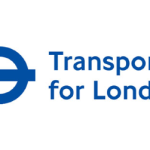As Ukraine edges dangerously close to a financial black hole, the European Commission is in overdrive mode, pressing Belgium to unlock a €140 billion loan funded by frozen Russian assets. But the Belgian Prime Minister is not playing ball just yet.
The European Commission has ramped up urgent discussions with Belgium, hoping to push through a vital €140 billion financial aid package to Ukraine before the country runs out of money in spring.
EU Battles Budget and Politics to Push Through Ukraine Loan
But with Belgium’s Prime Minister Bart De Wever preoccupied with a brewing fiscal crisis at home, the negotiations have hit a political snag.
The proposed loan secured against Russian state assets currently immobilised in Belgium aims to provide Ukraine with three years of crucial financial relief. Kyiv faces a staggering $60 billion budget gap through 2026, not including military expenditures.
Brussels is urging swift approval, warning that delays could leave EU leaders scrambling to use their own national budgets or worse, risk leaving Ukraine defenceless.
“If this fails, Ukraine might fall back into Moscow’s grip,” warned a senior EU official involved in the talks.
The critical meeting is set for Friday morning, with European Commission officials from the economic and budgetary teams set to brief Belgian leadership. Their goal: to convince De Wever that any financial or legal fallout tied to the immobilised assets will not burden Belgium in the future.
“The longer we now run delays, the more challenging it will become. It may open questions on some possible bridging solutions or so. So sooner is better,” said Economy Commissioner Valdis Dombrovskis during a recent conference in Sofia.
Frozen Russian Assets at Heart of High-Stakes Financial Gamble
Ukraine is dangerously close to running out of cash by April. The EU’s proposed mega-loan, secured using frozen Russian funds in Belgium, could be its last financial lifeline. But Belgium’s internal budget wrangling is threatening to stall the deal.
Back home, De Wever is in political gridlock. His coalition is battling to finalise a national budget that slashes spending by €10 billion. Talks have been dragging, and on Thursday, De Wever formally requested an extension from King Philippe to reach a deal by Christmas.
With domestic pressures mounting, the Prime Minister has placed the EU loan on the back burner, frustrating officials in Brussels.
Adding complexity, De Wever is demanding robust guarantees: national backing worth over €170 billion, and legal assurances that Belgium won’t be on the hook if Russia sues over the use of its frozen assets. The assets in question are held by Euroclear, a Brussels-based financial depository.
According to Dombrovskis, the Commission’s legal team has “very thoroughly assessed all the legal risks or possible litigation risks,” and considers them “contained.”
He added: “In any case, guarantees to be provided to Belgium [are] to cover potential financial risks Belgium may face” if legal actions are taken by Moscow.
Belgium’s Domestic Budget Crisis Threatens EU’s Ukraine Strategy
Safeguarding the Aid Package from Legal Threats
To shield Belgium, the EU is floating a plan where national guarantees would cover the loan until at least 2027.
By 2028, the start of the next seven-year EU budget cycle, the EU would assume full responsibility for the guarantee. However, this complex legal and financial engineering isn’t the only roadblock.
Hungary, Slovakia Add Political Heat
Some EU members, notably Hungary and Slovakia, maintain close ties to Moscow and are known to threaten vetoes on key sanctions packages. That means sanctions on Russia must be reapproved every six months, a risky routine that could derail the entire financial plan.
To bypass this, the Commission is exploring a legal workaround that would keep Russian assets frozen indefinitely until the Kremlin ends the war and pays reparations to Ukraine.
If sanctions lapse and the funds are unfrozen, Euroclear would be forced to transfer billions back to Moscow, a political and moral nightmare for Brussels.
Once Belgium’s objections are resolved, the Commission plans to formally present the legislation in the coming weeks. However, insiders believe the European Parliament may also weigh in on a move that could stall approval further, pushing the aid past Kyiv’s financial deadline.
Time is tight. The stakes are colossal. As one senior EU official bluntly put it, “This deal has to happen or Europe will need to prepare for a far more dangerous spring.”






